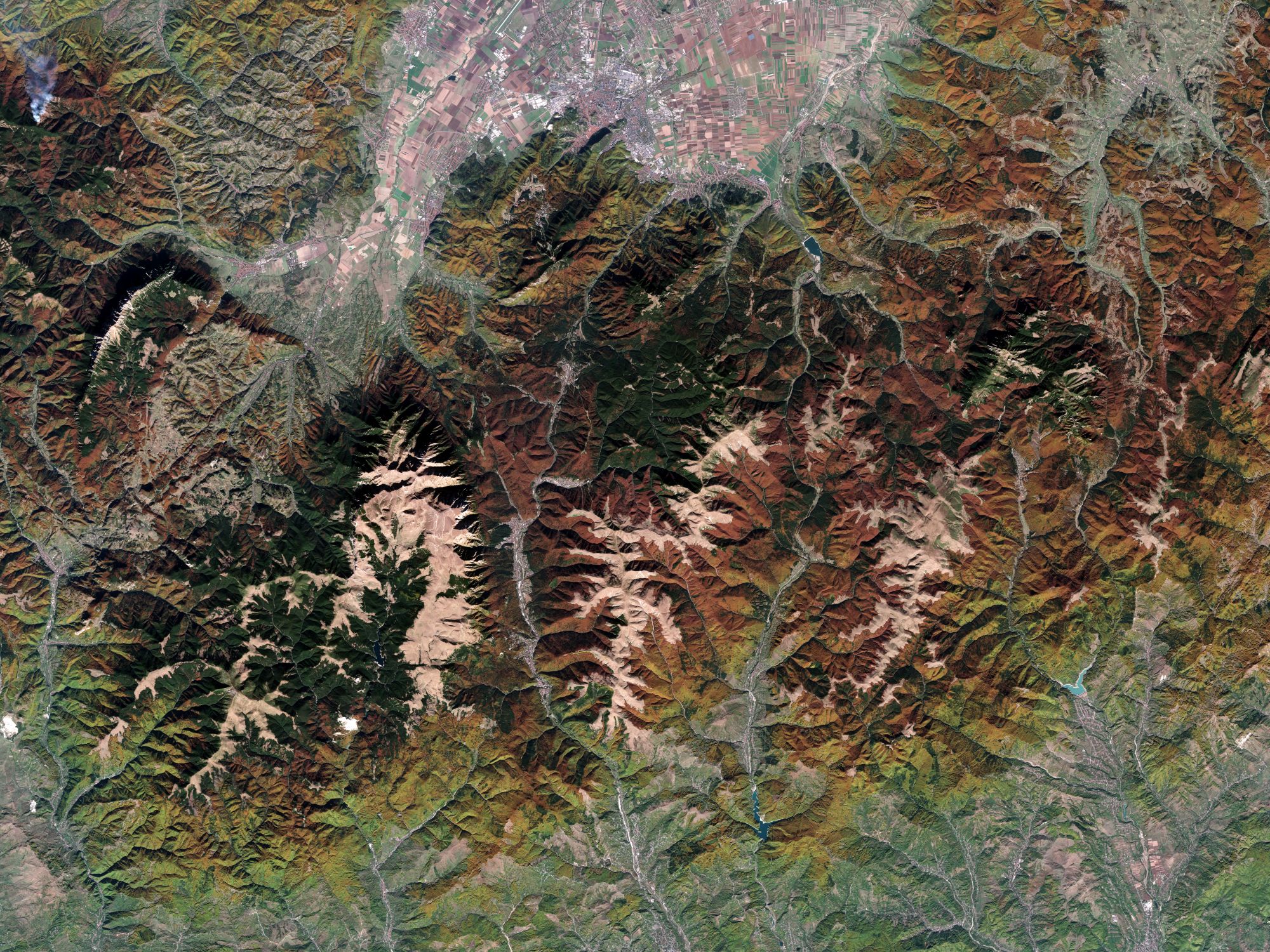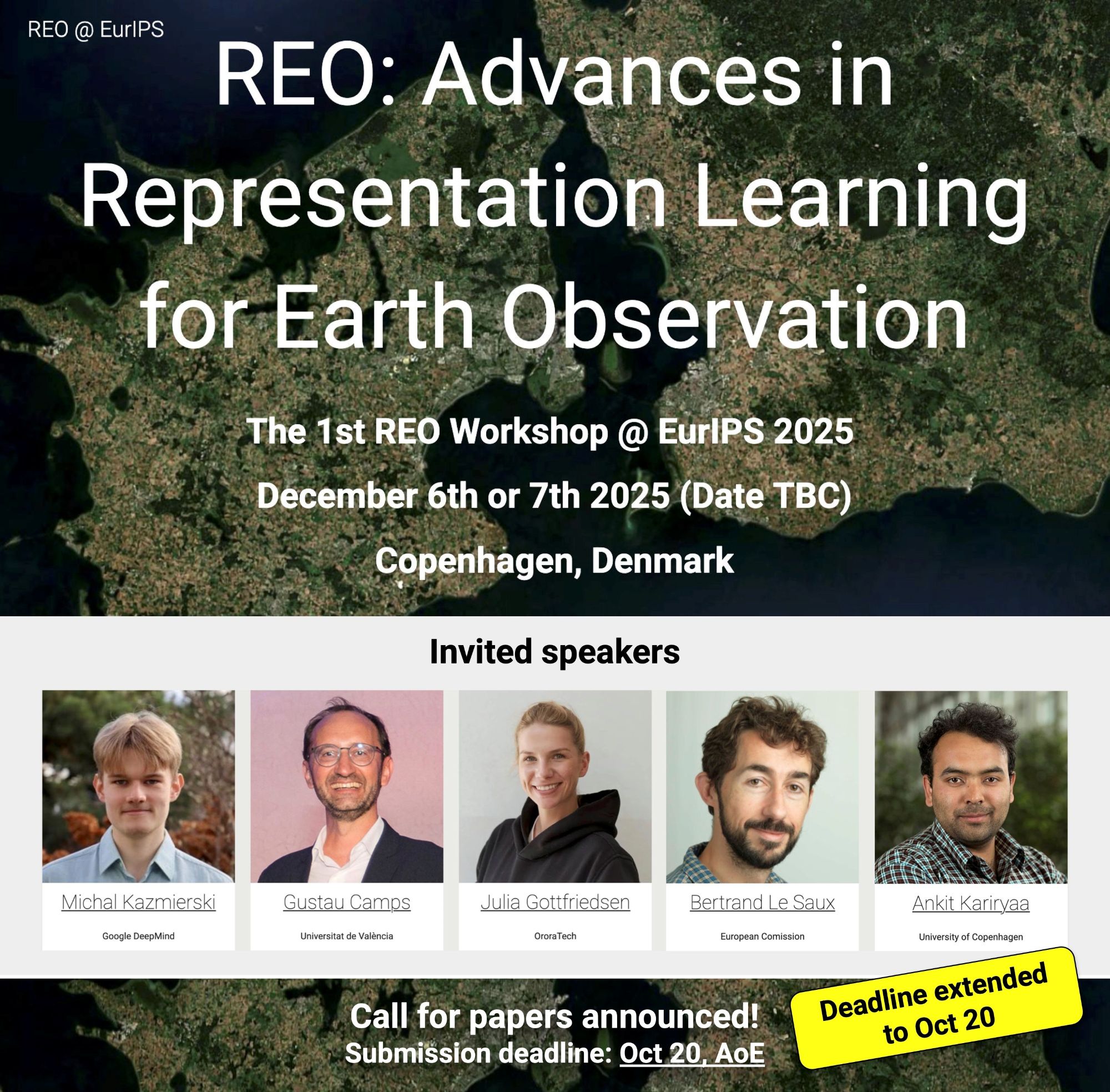Advancing AI for Earth observation at the REO workshop



The first ‘REO: Advances in Representation Learning for Earth Observation’ workshop will bring together researchers and practitioners from machine learning, computer vision, and Earth sciences to advance the development of robust, interpretable, and scalable models for monitoring our planet. The ‘Call for Papers’ submission deadline is 20 October 2025.
(Updated on 15 October 2025)
Taking place at the Bella Center Copenhagen on 6/7 December 2025, the Representation Learning for Earth Observation (REO) workshop – part of EurIPS, a European conference officially endorsed by NeurIPS – will gather experts from machine learning, computer vision, and Earth sciences to present the latest research, discuss real-world scientific uses, and share innovative system designs.
With massive, diverse datasets from satellites and other sensors becoming widely available – and with the rise of general-purpose foundation models – Earth observation faces new opportunities and complex challenges. But how can we best combine these various streams of information to create useful applications?
The development of representation learning algorithms that understand raw Earth observation data with minimal human instruction is gaining traction beyond university labs. This interest is highlighted by projects from technology leaders such as Google DeepMind’s AlphaEarth, ESA-IBM’s TerraMind, AllenAI’s Earth System, or Meta’s DINOv3.
This growth calls for more focused discussions on how to develop, deploy, and use these powerful models. The workshop will address fundamental questions like “Where is the field today, and what steps should the community take next?”, “What are the biggest hurdles in getting computers to effectively learn from Earth data?” or, given the trend towards general-purpose, one-for-all AI models, “What is the role of specialised approaches for Earth science?”
Participants are invited to present their novel work as extended abstracts or discuss recently published work that is relevant to the workshop. The ‘Call for Papers’ submission deadline is 20 October 2025. While the current deadline is set, organisers advise potential contributors to check the workshop’s website for any possible updates.
The topics are broad and exciting, including new approaches in machine learning for Earth observation, such as self-supervised, multimodal, and domain-adaptive models. Experts will discuss the combination of AI with physics, and the integration of established models into AI pipelines to get better predictions and understand the uncertainty in their results.
A major focus is on ecology and environmental monitoring, covering essential tasks like tracking changes in land use, mapping biodiversity, estimating forest biomass, and assessing the conditions of soil and vegetation.
Technical discussions will also focus on the difficulties of remote sensing data processing, such as combining different types of sensors and ensuring consistency between different satellites.
Discussions on data curation and accessibility will cover how to build fair, accurate, and easily accessible global datasets for research, ultimately driving real-world innovations in applications like mapping urban areas or monitoring natural disasters.

Leading scientists and industry experts will give keynote presentations: Gustau Camps-Valls from the IPL lab of the University of Valencia, Michal Kazmierski from Google DeepMind, Julia Gottfriedsen from OroraTech, Bertrand Le Saux from the European Commission, and Ankit Kariryaa from the University of Copenhagen.
“REO will provide an amazing opportunity for machine learning researchers and practitioners that are interested in Earth observation to find each other in Europe,” commented Ruben Cartuyvels, Internal Research Fellow at ESA Φ-lab. “The current trend in AI4EO of representation learning with foundation models of increasing size leaves many open questions, and fruitful community exchange is essential to take steps towards answering those”.
Interested parties can find out more about this workshop and submit their abstract here.
This workshop is being co-organised by researchers from ESA Φ-lab, the University of Copenhagen, the Technical University of Berlin, IBM Research Europe and ENPC.
To know more: REO Workshop
The banner image contains modified Copernicus Sentinel data (2024), processed by ESA
Share